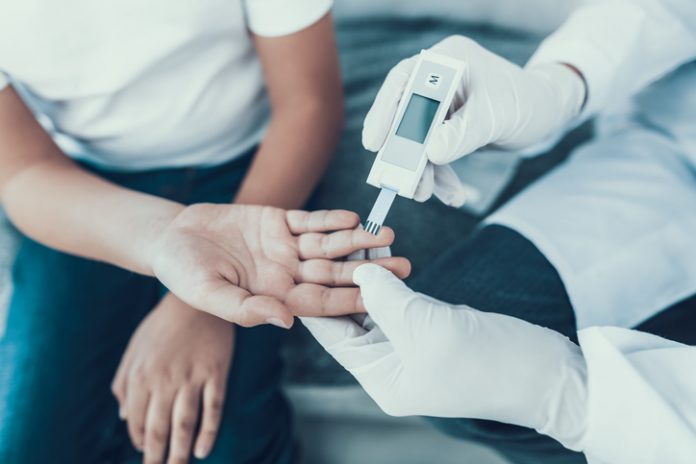The first approved drug that delays the onset of Type 1 Diabetes (T1D) is raising eyebrows because of its $193,900 price tag.
The drug, Tzield (teplizumab-mzwv), is designed to delay the onset of T1D stage 3—when a patient is symptomatic, which is when the disease is usually diagnosed. In clinical trials, Tzield delayed the progression of T1D to stage 3 for two years in adults and patients aged 8 years and older at stage 2—when asymptomatic patients can be diagnosed with a blood test.
This is a significant therapeutic benefit of the drug, Ashleigh Palmer, co-founder, and CEO of Provention Bio, the drug’s maker, stated in a news release.
“It cannot be emphasized enough how precious a delay in the onset of Stage 3 T1D can be from a patient and family perspective; more time to live without and, when necessary, prepare for the burdens, complications and risks associated with Stage 3 disease,” said Palmer.
Price Comparisons
Provention Bio announced Tzield’s price immediately after the U.S. Food and Drug Administration (FDA) approved it:$13,850 per vial or $193,900 for the full course of 14 treatments.
Tzield is an anti-CD3-directed monoclonal antibody given by injection. Monoclonal antibody treatments are notoriously expensive. For example, treatment with the popular anti-cancer antibody Rituxan (rituximab) for an average-weight adult carries a wholesale price of $7,724 per dose or $31,000 for a typical course.
New disease therapies are often not cost-effective, says Gregg Girvan, a research fellow at the Foundation for Research on Equal Opportunity.
“The pricing issue with Tzield is similar to debates over the appropriate pricing of gene therapies that are very expensive but purport to save costs elsewhere in the health care system,” said Girvan. “Drug companies often justify an extreme price on a drug that essentially ‘cures’ an ailment with the promise of savings achieved in the future. However, when comparing Tzield’s potential cost to the savings achieved, the $194,000 price point is completely unjustifiable.”
The cost of Tzield should be compared to conventional treatment, says Girvan.
“According to a study published by the American Diabetes Association, the average cost of diabetes treatment per patient was just under $16,750 per year, of which $9,600 was for diabetes treatment specifically,” said Girvan. “Given the drug only delays the onset of T1D by two years, the drug’s wholesale price exceeds the cost of delayed conventional treatment by more than 10 times.”
‘Not Effective for Everyone’
Research on Tzield began in 1986 and was pursued by other companies, before Provention acquired rights to it from Eli Lilly, in 2011, after the drug failed to show a therapeutic benefit in a late-stage clinical trial.
Provention conducted new clinical trials, but there are questions about the efficacy of Tzield, especially given its price tag, says Girvan.
“The FDA’s advisory committee narrowly recommended the drug’s approval on a 10 to 7 vote,” said Girvan. “In part, this is due to the low statistical power of the results since the phase III study used for approval had only 76 participants, of which 44 received the drug. Among those, the median time delay in T1D diagnosis was roughly two years compared to placebo. Some had a longer delay, but some also had less. In other words, the drug is not effective for everyone.”
Roughly, 30,000 U.S. patients are eligible for the treatment, according to Provention, but there is potentially a much larger population of undiagnosed patients. There are an estimated 1.4 million people in the United States with stage 2 T1D, most of whom have not been diagnosed.
‘Because They Can’
The cost of research, testing and FDA approval of a new drug is about $1 billion, on average.
The median annual price of new drug treatments is $257,000, according to an analysis by Reuters. Launch prices for new patented drugs rose by 20 percent every year for 14 years, and nearly half of all new prescription drugs cost more than $150,000 per year.
Consumers might expect insurers to help limit costs of increasingly expensive new drugs like Tzield, but that is unlikely, says David Hyman, M.D., J.D., a professor at Georgetown School of Law, scholar at the Cato Institute, and co-author of Overcharged: Why Americans Pay Too Much for Healthcare.
“Drug companies charge high prices because they can,” said Hyman. “Health insurance (both public and private) makes patients less price sensitive. The drug companies know that and set their prices accordingly. I expect a few insurers will try to push back. Insurers, with a few high-profile exceptions, have generally not pushed back on previous examples of high-priced drugs. Instead, they just pass the costs on. I would expect more of the same.”
‘The Reality of Rationing’
The third-party payment system, in which government or private insurers pay the bills, is responsible for the rising cost of health care, says Charles Silver, J.D., a professor at the University of Texas–Austin School of Law, a Cato scholar, and co-author of Overcharged.
“The willingness of payers to cut enormous checks incentivizes drug makers to produce expensive drugs, like cancer treatments that cost thousands or millions of dollars but extend patients’ lives for only a couple of months,” said Silver.
Insulated from costs, patients are unaware that there are limits to the resources that can be devoted to their care, says Silver.
“People want these treatments and think payers should cover them,” said Silver. “Americans refuse to face the reality of rationing, and in our politically-controlled, third-party payer-dominated payment system, they don’t have to.”
Kevin Stone (kevin.s.stone@gmail.com) writes from Arlington, Texas.



















